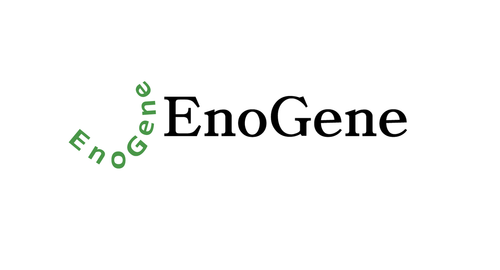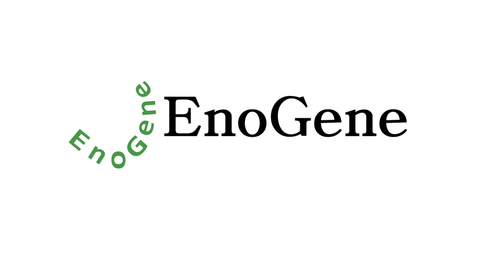Product Description
CASP8 Antibody (C-term) [AMM22205G] | Leading Biology
Product Category: Monoclonal Antibodies
Host: Mouse
Species Reactivity: H
Specificity: This CASP8 antibody is generated from a mouse immunized with a KLH conjugated synthetic peptide between 427-461 amino acids from the C-terminal region of human CASP8.
Cellular Localisation: Cytoplasm {ECO:0000250|UniProtKB:Q9JHX4}. Nucleus {ECO:0000250|UniProtKB:Q9JHX4}
Molecular Weight: 55391
Clone: Monoclonal
Gene Name: CASP8 {ECO:0000303|PubMed:9931493, ECO:0000312|HGNC:HGNC:1509}
Gene ID: 841
Function: Thiol protease that plays a key role in programmed cell death by acting as a molecular switch for apoptosis, necroptosis and pyroptosis, and is required to prevent tissue damage during embryonic development and adulthood (By similarity) . Initiator protease that induces extrinsic apoptosis by mediating cleavage and activation of effector caspases responsible for the TNFRSF6/FAS mediated and TNFRSF1A induced cell death (PubMed:23516580, PubMed:8681376, PubMed:8681377, PubMed:9006941, PubMed:9184224, PubMed:8962078) . Cleaves and activates effector caspases CASP3, CASP4, CASP6, CASP7, CASP9 and CASP10 (PubMed:8962078, PubMed:9006941) . Binding to the adapter molecule FADD recruits it to either receptor TNFRSF6/FAS mediated or TNFRSF1A (PubMed:8681376, PubMed:8681377) . The resulting aggregate called death- inducing signaling complex (DISC) performs CASP8 proteolytic activation (PubMed:9184224) . The active dimeric enzyme is then liberated from the DISC and free to activate downstream apoptotic proteases (PubMed:9184224) . Proteolytic fragments of the N-terminal propeptide (termed CAP3, CAP5 and CAP6) are likely retained in the DISC (PubMed:9184224) . In addition to extrinsic apoptosis, also acts as a negative regulator of necroptosis: acts by cleaving RIPK1 at 'Asp-324', which is crucial to inhibit RIPK1 kinase activity, limiting TNF-induced apoptosis, necroptosis and inflammatory response (PubMed:31827280, PubMed:31827281) . Also able to initiate pyroptosis by mediating cleavage and activation of gasdermin-D (GSDMD) : GSDMD cleavage promoting release of the N-terminal moiety (Gasdermin-D, N-terminal) that binds to membranes and forms pores, triggering pyroptosis (By similarity) . Initiates pyroptosis following inactivation of MAP3K7/TAK1 (By similarity) . Also acts as a regulator of innate immunity by mediating cleavage and inactivation of N4BP1 downstream of TLR3 or TLR4, thereby promoting cytokine production (By similarity) . May participate in the Granzyme B (GZMB) cell death pathways (PubMed:8755496) . Cleaves PARP1 (PubMed:8681376) .
Summary: Tissue Location: Isoform 1, isoform 5 and isoform 7 are expressed in a wide variety of tissues. Highest expression in peripheral blood leukocytes, spleen, thymus and liver. Barely detectable in brain, testis and skeletal muscle
Form: N/A
Storage: Store at +4°C short term. For long-term storage, aliquot and store at -20°C or below. Stable for 12 months at -20°C. Avoid repeated freeze-thaw cycles.
Application: WB, FC
Dilution: FC--1:25 WB--1:2000
Synonyms: Caspase-8, CASP-8, 3.4.22.61, Apoptotic cysteine protease, Apoptotic protease Mch-5, CAP4, FADD-homologous ICE/ced-3-like protease, FADD-like ICE, FLICE, ICE-like apoptotic protease 5, MORT1-associated ced-3 homolog, MACH, Caspase-8 subunit p18, Caspase-8 subunit p10, CASP8, MCH5
 Euro
Euro
 USD
USD
 British Pound
British Pound
 NULL
NULL

![CASP8 Antibody (C-term) [AMM22205G] CASP8 Antibody (C-term) [AMM22205G]](https://cdn11.bigcommerce.com/s-452hpg8iuh/images/stencil/1280x1280/products/870566/1162633/logo__92149.1659788186__65640.1659866699.png?c=2)
![CASP8 Antibody (C-term) [AMM22205G] CASP8 Antibody (C-term) [AMM22205G]](https://cdn11.bigcommerce.com/s-452hpg8iuh/images/stencil/100x100/products/870566/1162633/logo__92149.1659788186__65640.1659866699.png?c=2)
![CASP8 Antibody (C-term) [AMM22205G] CASP8 Antibody (C-term) [AMM22205G]](https://cdn11.bigcommerce.com/s-452hpg8iuh/images/stencil/500x659/products/870566/1162633/logo__92149.1659788186__65640.1659866699.png?c=2)
![CASP8 Antibody (C-term) [APR07084G] CASP8 Antibody (C-term) [APR07084G]](https://cdn11.bigcommerce.com/s-452hpg8iuh/images/stencil/500x659/products/867700/1159767/logo__92149.1659788186__26487.1659863735.png?c=2)



